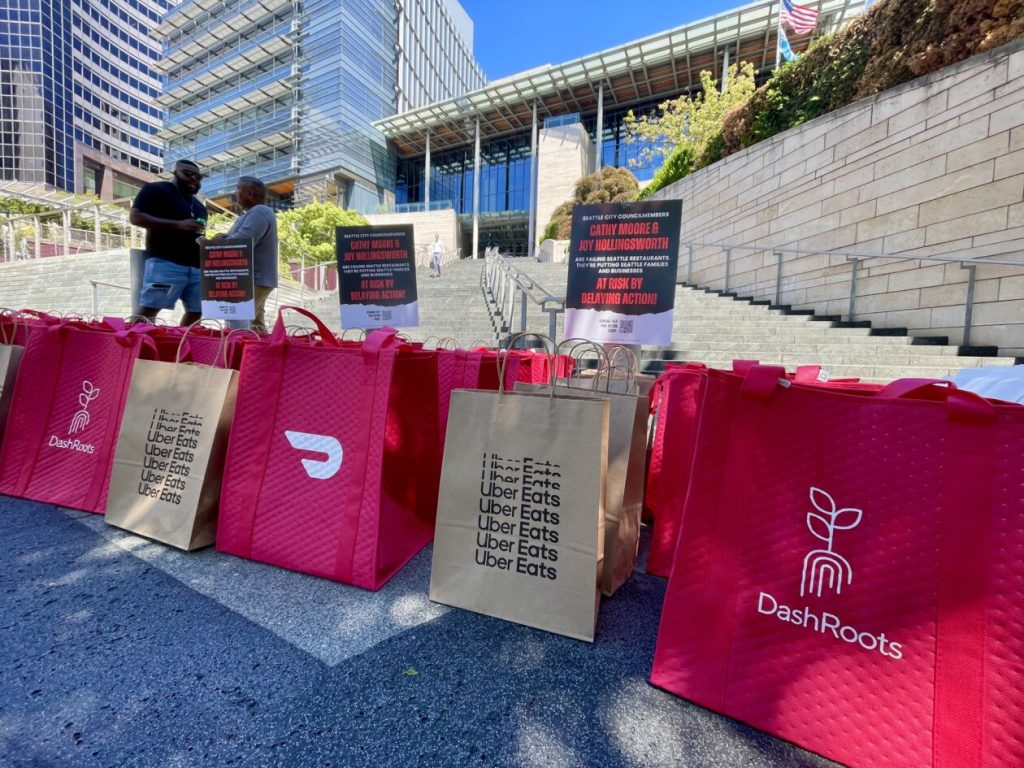Drive Forward, a nonprofit trade industry association representing gig workers in Seattle, recently held a media event at Seattle City Hall to discuss the impact of new delivery fees being implemented by DoorDash in response to a minimum wage law for drivers. DoorDash announced that it will add a $1.99 fee for certain long distance orders and set a $1.99 minimum service fee for orders made by subscribers of its DashPass program. These fees are in addition to the $5/order fee implemented by DoorDash and Uber in January. The companies claim that demand has fallen since the wage regulation was put in place, leading them to lobby lawmakers for a reduction in the minimum wage standard for drivers.
Seattle City Council President Sara Nelson introduced a bill that would have lowered the wage standard from $26.40 to $19.97 per hour, but the council postponed the vote to consider amendments. It remains unclear when or if Seattle lawmakers will vote on potential changes. DoorDash has stated that it will remove its $5 fee if the bill is passed, citing losses due to the minimum pay ordinance. The company reported revenue of $2.5 billion in the first quarter, with a GAAP net loss of $25 million. DoorDash argues that the fees are necessary for the company to remain operationally sustainable in Seattle.
The response from drivers to the new law in Seattle has been mixed, with some reporting increased earnings while others claim to be making less money and receiving fewer orders. Similarly, restaurant owners have conflicting opinions, with some supporting the current law and others claiming that the lack of demand is negatively impacting their business. The situation in Seattle is part of a larger battle between tech-fueled food delivery companies and lawmakers setting minimum wage regulations. Uber and Lyft have fought similar laws in Minnesota, while DoorDash has criticized a new minimum pay law in New York City, calling it “devastating.”
In New York City, food delivery drivers saw wages increase by more than $7 per hour following the implementation of a minimum wage law, with the number of deliveries also increasing by 8%. Seattle’s impact is harder to assess as the city does not require companies to provide detailed data. Seattle has become a testing ground for the impact of labor standards in the food delivery market, which is facilitated by tech companies that promise flexibility and independence but have faced scrutiny over their treatment of workers and restaurants. The situation in Seattle is being closely monitored as the battle between regulators and tech companies continues.


